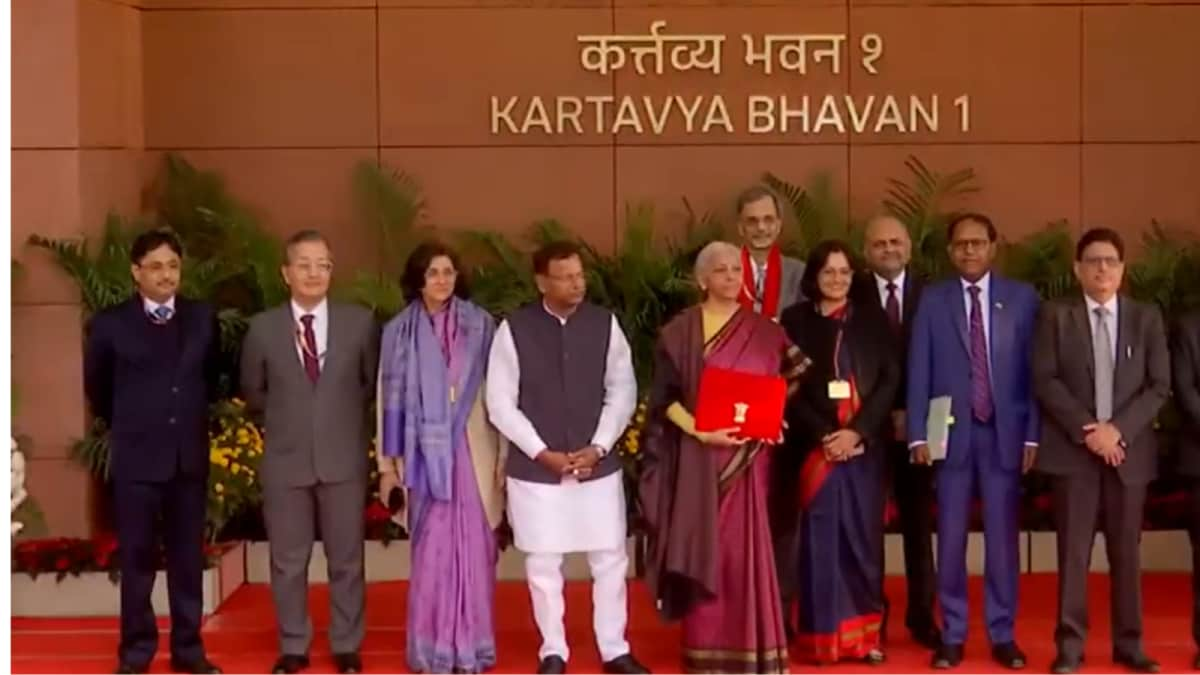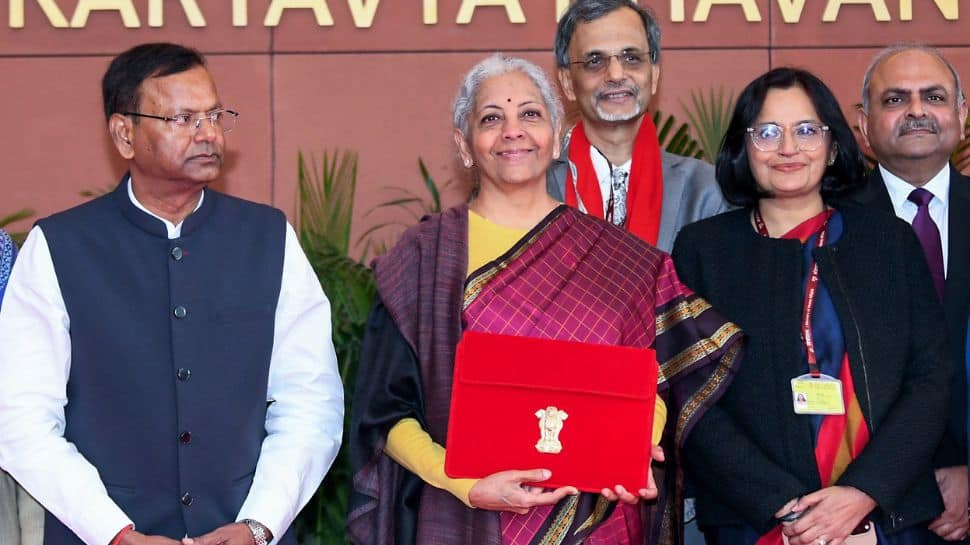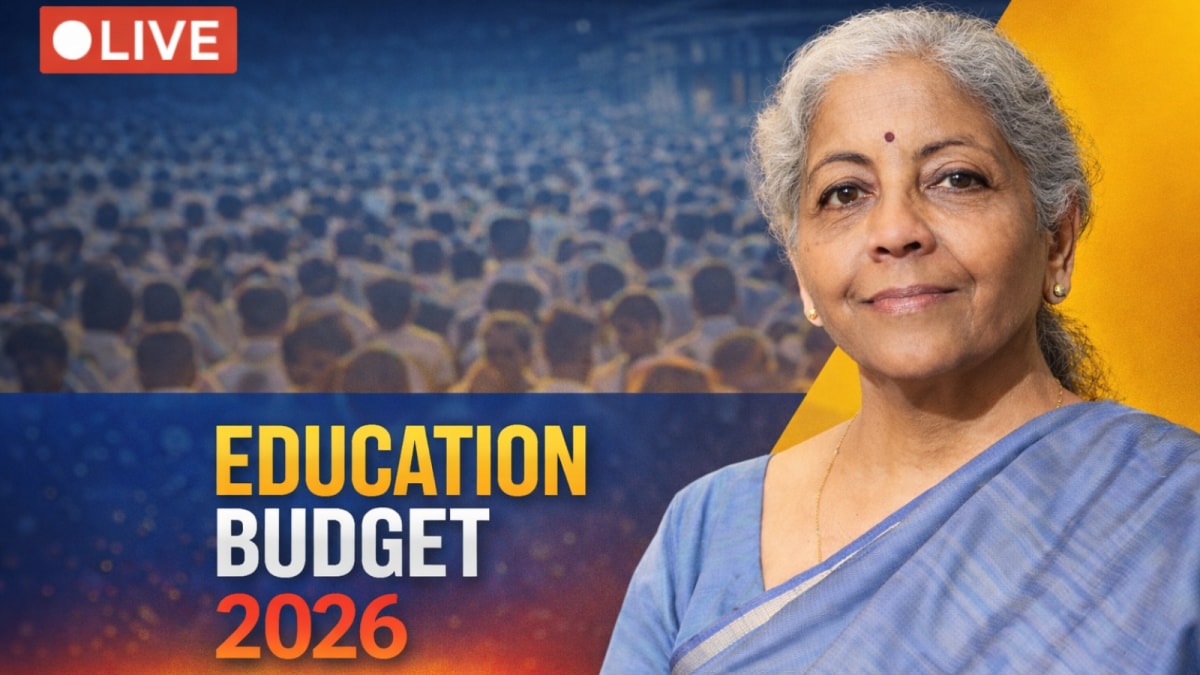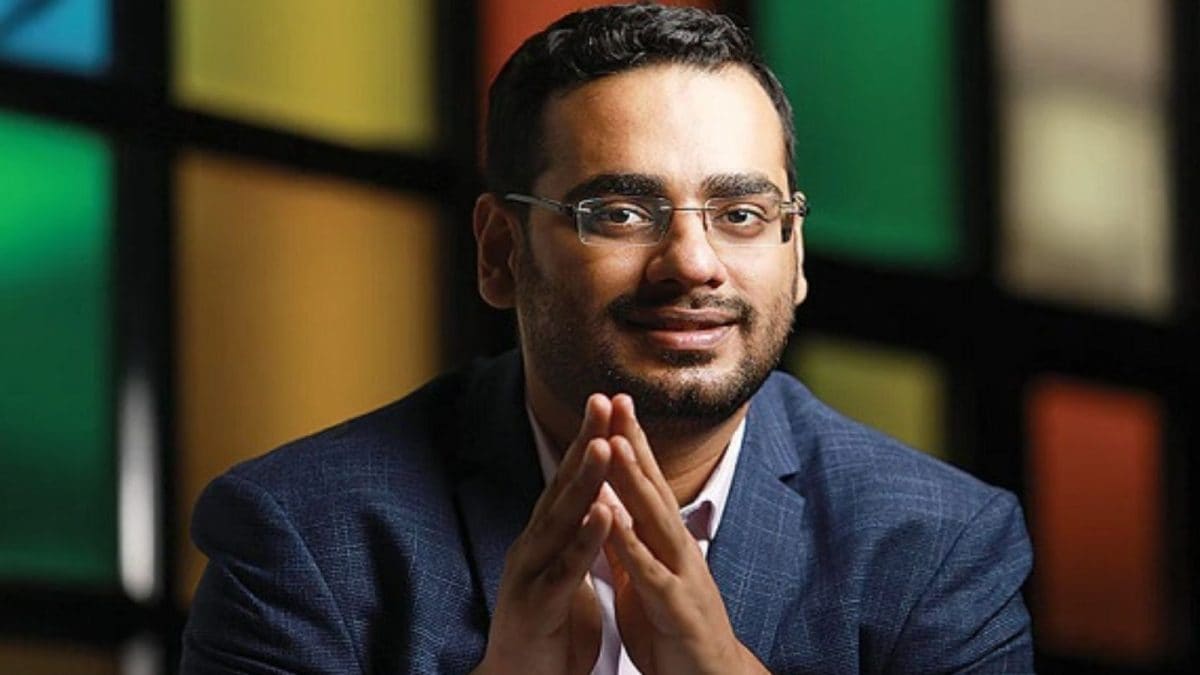Business
Security concerns over system at heart of digital ID

The government is facing questions over whether the system at the heart of its plans for digital ID can be trusted to keep people’s personal data secure.
Digital ID will be made available to all UK citizens and legal residents but will only be mandatory for employment, under the government’s proposals.
Full details of how the system will work have yet to be announced but Prime Minister Sir Keir Starmer has insisted it “will have security at its core”.
It will be based on two government-built systems – Gov.uk One Login and Gov.uk Wallet.
One Login is a single account for accessing public services online, which the government says more than 12 million people have already signed up to.
By this time next year that might be as many as 20 million, as people registering as company directors will have to verify their identity through One Login from 18 November.
Gov.UK Wallet has not yet been launched but it could eventually allow citizens to store their digital ID – including name, date of birth, nationality and residence status, and a photo – on their smartphones.
Users will need a Gov.UK One Login to access the wallet.
Last month, the government launched a digital identity card for military veterans to test the concept.
The government hopes to avoid security issues by keeping the personal details to be accessed through One Login in individual government departments rather than in a single, centralised database.
But veteran civil liberties campaigner and Conservative MP David Davis has raised concerns about potential flaws in the design and implementation of One Login that he says could leave it – and the new digital ID scheme – vulnerable to hackers.
Speaking in a Westminster Hall debate earlier this month, he said: “What will happen when this system comes into effect is that the entire population’s entire data will be open to malevolent actors – foreign nations, ransomware criminals, malevolent hackers and even their own personal or political enemies.
“As a result, this will be worse than the Horizon [Post Office] scandal.”
Davis has written to spending watchdog the National Audit Office calling for an “urgent” investigation into the cost of One Login, which he says is certain to rise above the £305m already earmarked for it.
In his letter, the MP highlights a 2022 incident, in which it was found that the One Login system was being developed on unsecured workstations by contractors without the required security clearance in Romania.
Davis also points out that One Login does not meet the government’s own requirements to be classified as a safe and trusted identity supplier.
The government has blamed a supplier for allowing its Digital Identity and Attributes Trust Framework certification to lapse earlier this year and says it is working towards it being restored, which will happen “imminently”.
Separately, Liberal Democrat technology spokesman Lord Clement-Jones has questioned whether One Login meets National Cyber Security Centre standards.
The peer says he has been speaking to a whistleblower, who claims that the government has missed the 2025 deadline set out in its national cyber security strategy for hardening “critical” systems against cyber attacks.
Ministers deny this but the Lib Dem peer said he had been told by an official that One Login would not pass the required security tests until March 2026.
The whistleblower also highlighted an incident from March this year, when a so-called “red team” tasked with simulating a real life cyber attack was reportedly able to gain privileged access to One Login systems.
The Department for Science, Innovation and Technology (DSIT) says it is unable to give details of the red team exercise for security reasons but says claims that its systems were penetrated without detection are false.
DSIT officials also assured Lord Clement-Jones that the subcontractors in Romania were “a handful of people” none of whom had access to production “and all code was checked”.
The department says all members of the team working on One Login use “corporately managed” devices which are monitored by a security team to detect any malicious activity.
But Lord Clement-Jones told the BBC he was not convinced by the department’s assurances.
He said the track record of successive governments of running One Login and other systems “should give us all no confidence at all that the new compulsory digital ID, which will be based on them, will ensure that our personal data is safe and will meet the highest cybersecurity standards”.
Last week, the prime minister handed overall control of the digital ID scheme to the Cabinet Office, which is headed by one of his most trusted and senior ministers Darren Jones, reflecting its importance to the government.
But the Government Digital Service, which is part of DSIT, will retain responsibility for design of the project.
A DSIT spokesperson said: “Gov.UK One Login continues to deliver for citizens across the UK.
“One Login is now home to more than 100 services and has been used by more than 12 million people – representing almost a sixth of the UK population.
“One Login follows the highest security standards used across government and the private sector and is fully compliant with UK data protection and privacy laws.
“The system undergoes regular security reviews and testing, including by independent third-parties, to ensure security remains strong and up to date.”
Business
Budget 2026 Live Updates: TCS On Overseas Tour Packages Slashed To 2%; TDS On Education LRS Eased

Union Budget 2026 Live Updates: Union Budget 2026 Live Updates: Finance Minister Nirmala Sitharaman is presenting the Union Budget 2026-27 in Parliament, her record ninth budget speech. During her Budget Speech, the FM will detail budgetary allocations and revenue projections for the upcoming financial year 2026-27. Sitharaman is notably dressed in a Kanjeevaram Silk saree, a nod to the traditional weaving sector in poll-bound Tamil Nadu.
The budget comes at a time when there is geopolitical turmoil, economic volatility and trade war. Different sectors are looking to get some support with new measures and relaxations ahead of the budget, especially export-oriented industries, which have borne the brunt of the higher US tariffs being imposed last year by the Trump administration.
On January 29, 2026, Sitharaman tabled the Economic Survey 2025-26, a comprehensive snapshot of the country’s macro-economic situation, in Parliament, setting the stage for the budget and showing the government’s roadmap. The survey projected that India’s economy is expected to grow 6.8%-7.2% in FY27, underscoring resilience even as global economic uncertainty persists.
Budget 2026 Expectations
Expectations across key sectors are taking shape as stakeholders look to the Budget for support that sustains growth, strengthens jobs and eases financial pressures:
Taxpayers & Households: Many taxpayers want practical improvements to the income tax structure that preserve simplicity while supporting long-term financial planning — including broader deductions for home loan interest and diversified retirement savings options.
New Tax Regime vs Old Tax Regime | New Income Tax Rules | Income Tax 2026
Businesses & Industry: With industrial output and investment showing resilience, firms are looking for policies that bolster capital formation, ease compliance, and expand infrastructure spending — especially in manufacturing and technology-driven sectors that promise jobs and exports.
Startups & Innovation: The startup ecosystem expects incentives around employee stock options and capital access, along with regulatory tweaks that encourage risk capital and talent retention without increasing compliance burdens.
Also See: Stock Market Updates Today
The Budget speech will be broadcast live here and on all other news channels. You can also catch all the updates about Budget 2026 on News18.com. News18 will provide detailed live blog updates on the Budget speech, and political, industry, and market reactions.
We are providing a full, detailed coverage of the union budget 2026 here, with a lot of insights, experts’ views and analyses. Stay tuned with us to get latest updates.
Also Read: Budget 2026 Live Streaming
Here are the Live Updates of Union Budget 2026:
Business
Budget 2026: Cabinet gives green signal to Union Budget 2026–27

New Delhi: The Cabinet on Sunday approved the Union Budget 2026-27 during a meeting in Parliament chaired by Prime Minister Narendra Modi. A meeting of the Union Cabinet was held at Sansad Bhawan at 10 a.m., and after the Cabinet’s approval, Finance Minister Nirmala Sitharaman proceeded to Parliament to present the Budget.
Earlier, FM Sitharaman met President Droupadi Murmu and offered her a copy of the digital budget. The President also offered ‘dahi-cheeni’ (curd and sugar) to Sitharaman when she arrived at the Rashtrapati Bhavan. The Finance Minister was seen carrying her trademark ‘bahi-khata’, a tablet wrapped in a red-coloured cloth bearing a golden-coloured national emblem on it.
Minister of State for Finance Pankaj Chaudhary, Chief Economic Advisor Dr V. Anantha Nageswaran, Central Board of Direct Taxes (CBDT) Chairman Ravi Agrawal and other officials were seen accompanying the Finance Minister. Sitharaman was set to present her ninth consecutive Union Budget in the Lok Sabha. In 2021, she switched to using a digital tablet to carry the Budget papers, further promoting a modern and eco-friendly approach.
The ‘bahi-khata’ is a red pouch that holds the digital tablet containing the Budget documents. This year, Sitharaman opted for a deep maroon Kanjeevaram saree from Tamil Nadu. The saree featured a deep maroon base with a contrasting border and subtle gold detailing, paired with a yellow blouse.
The Budget is likely to strike a deft balance of sustaining growth momentum and maintaining fiscal consolidation. It also needs to address near-term challenges emanating from unprecedented geopolitical flux, said economists. According to economists, the budget is likely to focus more on capital expenditure, especially in sectors deemed to be strategically important owing to prevailing geopolitical compulsions.
While the FY26 Budget was more tilted towards stimulating middle-class consumption with tax reliefs, the FY27 Budget’s approach to stimulating consumption will be selective, they added.
Business
Education Budget 2026 Live Updates: What Will The Education Sector Get From FM Nirmala Sitharaman?

Union Education Budget 2026 Live Updates: Union Finance Minister Nirmala Sitharaman will present the Union Budget 2026–27 on February 1, with a strong focus expected on the Education Budget 2026, a key area of interest for students, teachers, and institutions across the country.
In the previous budget, the Bharatiya Janata Party government announced plans to add 75,000 medical seats over five years and strengthen infrastructure at IITs established after 2014. For 2025, the Centre had earmarked Rs 1,28,650.05 crore for education, a 6.65 percent rise compared to the previous year.
Meanwhile, the Economic Survey 2025–26, tabled in the Parliament of India, points to persistent challenges in school education. While enrolment at the school level is close to universal, this has not translated into consistent learning outcomes, especially beyond elementary classes. The net enrolment rate drops sharply at the secondary level, standing at just over 52 per cent.
The survey also flags concerns over student retention after Class 8, particularly in rural areas. It notes an uneven spread of schools, with a majority offering only foundational and preparatory education, while far fewer institutions provide secondary-level schooling. This gap, the survey suggests, is a key reason behind low enrolment in higher classes.
Stay tuned to this LIVE blog for all the latest updates on the Education Budget 2026 LIVE.
-

 Business1 week ago
Business1 week agoSuccess Story: This IITian Failed 17 Times Before Building A ₹40,000 Crore Giant
-

 Fashion1 week ago
Fashion1 week agoSouth Korea tilts sourcing towards China as apparel imports shift
-

 Sports1 week ago
Sports1 week agoTransfer rumors, news: Saudi league eyes Salah, Vinícius Jr. plus 50 more
-

 Sports5 days ago
Sports5 days agoPSL 11: Local players’ category renewals unveiled ahead of auction
-

 Entertainment1 week ago
Entertainment1 week agoThree dead after suicide blast targets peace committee leader’s home in DI Khan
-

 Sports1 week ago
Sports1 week agoWanted Olympian-turned-fugitive Ryan Wedding in custody, sources say
-

 Tech1 week ago
Tech1 week agoStrap One of Our Favorite Action Cameras to Your Helmet or a Floaty
-

 Tech1 week ago
Tech1 week agoThis Mega Snowstorm Will Be a Test for the US Supply Chain




